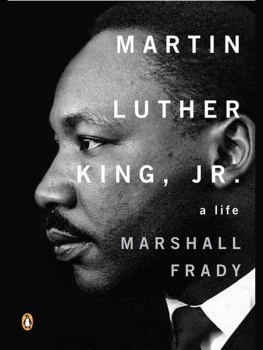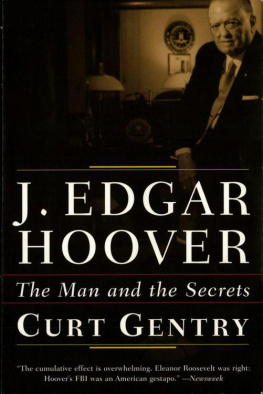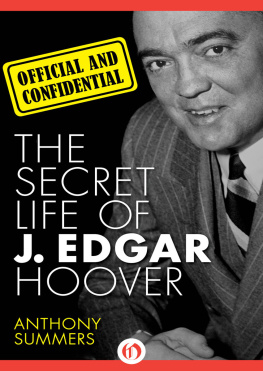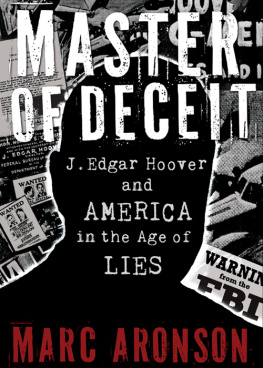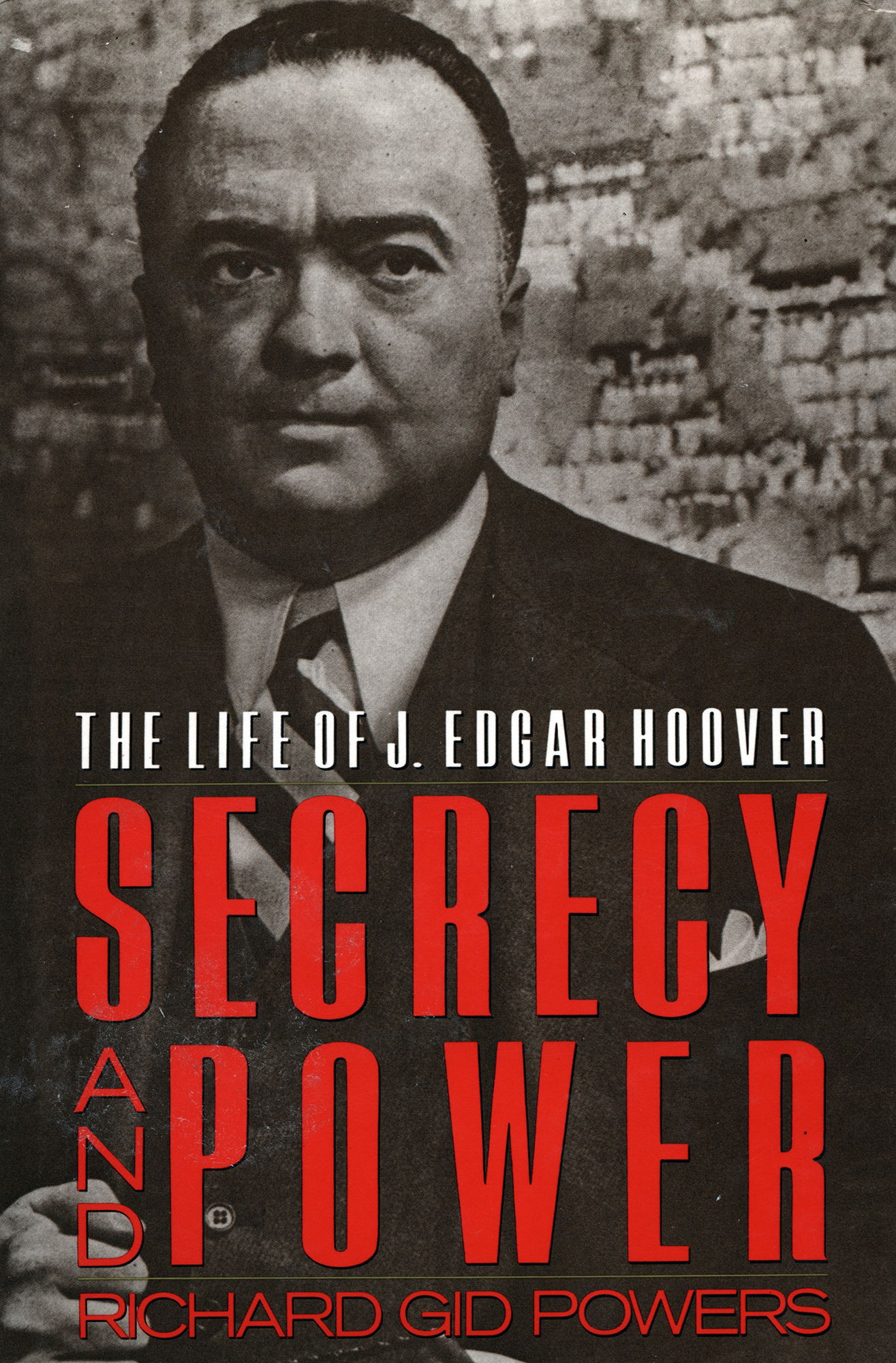Contents
Guide
Copyright 1987 by Richard Gid Powers
All rights reserved. No part of this book may be reproduced or transmitted in any form or by any means, electronic or mechanical, including photocopying, recording, or by any information storage and retrieval system, without permission in writing from the Publisher.
The Free Press
A Division of Macmillan, Inc.
866 Third Avenue, New York, N.Y. 10022
Collier Macmillan Canada, Inc.
www.SimonandSchuster.com
First Free Press Paperback Edition 1988
Library of Congress Cataloging in Publication Data
Powers, Richard Gid
Secrecy and power, the life of J. Edgar Hoover.
Bibliography: p.
Includes index.
1. Hoover, J. Edgar (John Edgar), 1895-1972. 2. United States. Federal Bureau of Investigation. 3. PoliceUnited StatesBiography. 4. Government executivesUnited StatesBiography. I. Title.
HV7911.H6P68 1986 353.00740924 [B] 86-26926
ISBN 0-02-925061-7
ISBN-13: 978-1-9821-5449-3 (eBook)
For
Eileen, Sarah, and Evelyn
Acknowledgments
O FFICIALS AT THE FBI were helpful and efficient in fulfilling my requests for files and information. I appreciate the efforts of James K. Hall of the Records Management Division of the Freedom of Information-Privacy Acts Section, Jack French and Ernest Porter of the Research Unit of the Office of Congressional and Public Affairs, and Dr. Susan Falb, FBI Historian, OCPA, who has done great things to justify the ways of SOG (Seat of Government, FBI parlance for Washington) to man. Research in FBI files is inherently difficult, but not, as far as I could tell, because of any obstacles raised by the present-day FBI.
At the National Archives, I was fortunate to have the assistance of Cynthia G. Fox and Michael McReynolds of the Civil Archives Division of the Judicial, Fiscal, and Social Branch, and John Taylor of the Modern Military Division.
I was helped in locating elusive fragments of Hoovers early life by specialists in the history of Washington schools: Richard Hurlbert of the District of Columbia school system; Mrs. Hardy of the systems attendance office; Walton Shipley, Central High School historian; and Hugh Y. Bernard, historian of the George Washington University Law School.
At the presidential libraries I would like to thank Dale C. Mayer of the Herbert Hoover Library, Raymond Teichman of the FDR, Dennis Bilger at the HST, David Haight at the Eisenhower, Nancy Smith at the LBJ, and Megan Floyd Desmoyers and Joan Kennedy at the JFK.
I am grateful for the assistance of Mary Wolfskill of the Manuscript Division of the Library of Congress, Mary Plummer of the Presbyterian National Historical Society, Robin Wear of the Alderman Library of the University of Virginia, and Franz Lassner and Harold Badger of the Freedoms Foundation.
Hoovers nieces, Margaret Hoover Fennell and Anna Hoover Kienest, provided me with many reminiscences of their uncle. Hoovers pastor, Edward L. R. Elson of the National Presbyterian Center, and the historian of the center, Ervin Chapman, gave me insight into the nature of Hoovers religious affiliations. Mr. and Mrs. Rex Collier shared their memories of their long association with Hoover.
Former Attorney General Herbert Brownell, former Associate FBI Director Mark Felt, Assistant to the Director Cartha DeLoach, Assistant Director Courtney Evans, and former Special Agents William Gunn and Milton Ellerin all provided useful information about Hoover and his FBI. Ernest Cuneo and Thomas Troy answered my questions about Hoover and the OSS.
I am grateful for the assistance of many writers whose research has touched on some aspect of Hoovers career: Kai Bird, Ralph de Toledano, Candace Falk, David Garrow, Donald M. Goldstein, Walter Goodman, Gil Green, Robert Hill, Max Holland, Ted Morgan, David Oshinsky, and Scott Rafferty; also Paul Burka, John Cammett, Stanley Coben, John Copp, Lynn Dumenil, Charles Gillieron, Stanley Kutler, J. Fred MacDonald, and Arthur M. Schlesinger, Jr.
At the College of Staten Island, I was given enthusiastic support by President Edmond L. Volpe, Dean Barry Bressler, and Jerome Mardison of the CSI library.
Many friends helped and encouraged me during the years consumed by this project. I am particularly grateful to Frederick Binder, Sandi Cooper, Roy and Cora Hoopes, Jane Kozlowski, Carol Luedtke, Claire and Edward Margolies, Louis Phillips, and Barton L. St. Armand. I am grateful to Seymour Rudin for his pains in correcting errors in the text. From what people tell me, my wife and children did fairly well for themselves while I was tied up with Hoover. I am looking forward to finding out for myself.
No writer could ask for better support than I received from The Free Press at Macmillan. Being exposed to the intelligence of President and Publisher Erwin Glikes was a great experience. Finally, the real credit for whatever merit this book has belongs to my editor at The Free Press, whose good humor, intense concentration, keen insight, and high standards never faltered during a long and intense ordeal: Joyce Seltzer.
PROLOGUE

Secrecy and Power
T HE J. E DGAR H OOVER FBI H EADQUARTERS, its windows set deeply back behind cast-stone frames, seems to squint suspiciously down Pennsylvania Avenue toward the Capitol and at the Justice Department building across the street. The interior plan of the complex is obscured by heavy barriers of stone and metal. Between protective pillars and behind steep walls only deep shadows can be seen, concealing activities whose nature outsiders can only imagine. The massive FBI headquarters is a concrete monument to the man who ran the Federal Bureau of Investigation for forty-eight years.
Hoover directed the Bureau so long that he seemed fixed in the political landscape of Washington. There was that bulldog face: those tiny, squinting eyes; the clenched jaw; and squashed-in nosefeatures so distinctive that any decent cartoonist could produce a recognizable likeness with a few strokes of the pen. It was a face of confident power. The wary eyes looked as if they had seen the worst in human nature and expected to see it again. The grim scowl was that of a man who had seen all evil, heard all evil, and could be counted on to warn of any evil that would put the nation in danger.
As chief of federal law enforcement and guardian of domestic security, Hoover moved within the innermost rings of the most powerful circles of government, with critical responsibilities during the greatest political crises and national emergencies of the century. The Bureau he led, powerful, efficient, completely subordinate to his will, was a resource presidents and the public came to depend on for decisive, effective performance under the most sensitive and difficult circumstances.
In his time, the man and his Bureau were cloaked in a selective secrecy and protected by power so formidable that few dared to pry. The secretsthe files on Communists, on spies, the hundreds of millions of fingerprints, the dossiers on the great and the famouswere whispered to have silenced his critics and destroyed his enemies. To those who saw it as a threat to political freedom, Hoovers secret power was a frightening specter that haunted the nation.


